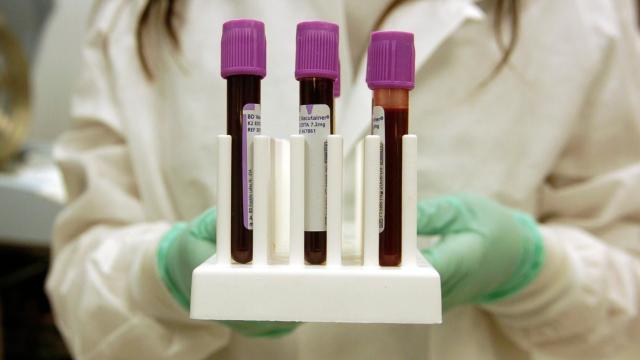For the past month, the U.S. has been facing a dire lack of blood collection tubes, both due to the demands of the pandemic and global supply chain issues. This week, the National Coalition of STD Directors warned that this shortage is now starting to cause “widespread disruptions” in STD testing, particularly for HIV and syphilis.
In June 2021, the Food and Drug Administration reported a shortage in sodium citrate (light blue top) tubes. But by late January this year, the shortage was now affecting all kinds of blood sample tubes sold in the country. The FDA cited an “increase in demand and recent vendor supply challenges” for the dwindling stockpile.
Sexually transmitted diseases can cause physical symptoms like painful urination or sores around the genitals. But often, people may not know they’re infected without testing. Some infections, like those caused by chlamydia or gonorrhea, can be confirmed through urine or swab testing, but others — particularly HIV, syphilis, and hepatitis B — require blood testing. And unsurprisingly, the lack of tubes is beginning to cause trouble with our surveillance of these diseases.
“Blood specimen collection tubes are essential for providing routine, standard of care blood testing for laboratory analysis, including sexual health testing,” said Jennifer Mahn, NCSD director of clinical and sexual health, in a statement released by the organisation Wednesday. “This shortage is leading to widespread disruptions in vitally important sexual health services.”
The timing is particularly bad. Over the past few years, the U.S. has been seeing a steady rise in STD cases — one that many experts expect to get worse in the near future. Rates of new HIV cases have declined over this time period, but the same isn’t true for syphilis. And without regular testing, people are more likely to contract and then spread these infections. Left untreated, both of these infections can cause serious, life-threatening complications, including for children born to infected mothers.
Following the FDA’s announcement of the shortage, the NCSD and others began recommending that STD clinics and doctors only conduct tests that they deem medically necessary, while avoiding the testing of people getting their regular check-up. But it’s a temporary band-aid that simply isn’t tenable in the long term. And the organisation is calling for the FDA and Centres for Disease Control Prevention to come up with an immediate stop-gap solution.
“Sexual health clinics and providers should not have to ration essential public health supplies, nor should they be forced to make decisions about which individuals warrant testing,” said Stephanie Arnold Pang, NCSD’s senior director of government relations & policy. “NCSD will continue to monitor this situation and again call on our federal partners to do all they can to mitigate this shortage, including using emergency powers granted under the Defence Production Act, to ensure continued access to routine, lifesaving STI testing for all.”
Editor’s Note: Release dates within this article are based in the U.S., but will be updated with local Australian dates as soon as we know more.
